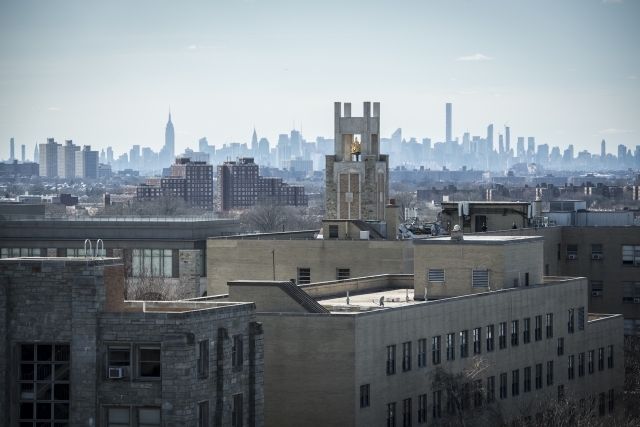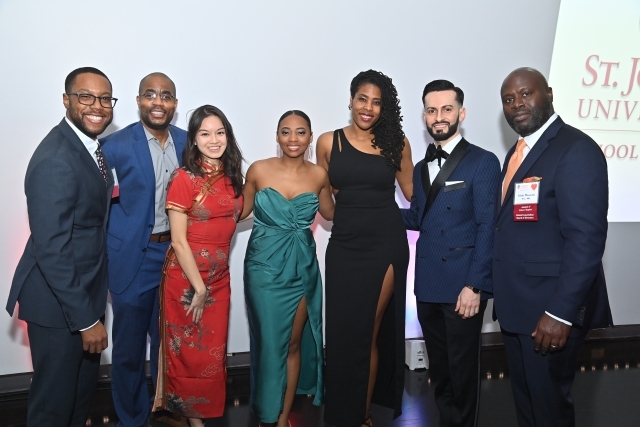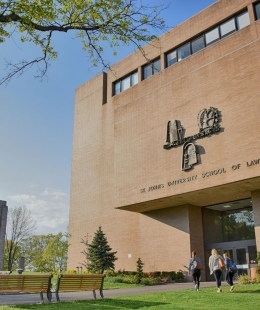








School of Law
Outcomes, location, community. We've got it all. Apply early – Priority Deadline March 15!
Celebrating 100 Years of St. John's Law
Congratulations, Class of 2025!
Connect with Us!
See infra
St. John's Law Magazine
St. John's Law Alumni Association
The St. John's Law Advantage
St. John’s Law opened in 1925 to help a diverse and talented student body learn the fundamentals of the law, build practical skills, and uplift their communities. That founding mission still animates the Law School community as our students excel in the classroom, on journals, and in clinics, externships, and advocacy competitions. Our graduates surpass national and New York bar passage and employment averages and proudly join a network of 17,000+ alumni worldwide, including distinguished public servants, preeminent law firm and business leaders, and pioneering entrepreneurs. Recognizing that achievement in the field, Law.com has named St. John’s Law a “Go-To Law School” for placing the most graduates in the 100 biggest law firms.

J.D. Admissions
St. John’s Law is an inclusive, accepting, and welcoming community that reflects the rich diversity of our hometown of Queens, NY, “The World’s Borough.” From the classroom to internships and clinical work in the field to study abroad, our students develop the lawyering skills, targeted expertise, and professional connections they need to graduate practice-ready, all with the support of our outstanding faculty, dedicated career counselors, and global alumni network. Our employment and bar exam outcomes consistently rank us among the top New York law schools and, whatever career path they choose, our students carry with them St. John's Vincentian values, understanding that law is a vocation through which they can live justly and better the world.
J.D. Admissions Information
Careers
St. John's Law is one of the best not only in New York City but nationally for placing graduates in full-time, long-term jobs that require bar passage or for which a J.D. is an advantage. How do we do it? It's our integrated and proactive approach to career success that starts from your very first day.
Career Development at St. John's Law
Diversity, Equity, and Inclusion
Welcoming. Inclusive. Caring. These are words used again and again by our students, faculty, staff, and alumni to describe the Law School. Diversity is a proud St. John's University tradition.
DEI Programs and Initiatives
Faculty
The School of Law’s faculty are experts in their fields and care about their student's success both in the classroom and throughout their careers.
St. John's Law Faculty
Study Abroad
From our Rome summer program to a semester abroad or the annual two-week Dean's Travel Study Program, St. John's Law offers exceptional opportunities to learn and live around the world.
Study Abroad Opportunities
Gain Skills & Knowledge
Through our in-house and partner clinics, you'll build practical knowledge and skills as you advocate for underserved, marginalized, and underrepresented New Yorkers in real legal matters.
Law School ClinicsConnect With Us
Find us on Social Media
Sign up to receive updates, information, and notifications for events!
There’s no better place to start your legal career than New York City, and there’s no better place to get New York City practice-ready than St. John’s Law.
Sign Up Now
J.D. Admissions Office
Connect with us and learn more about the Law School!
St. John's University School of Law
Belson and Finley Halls Room 3-01
